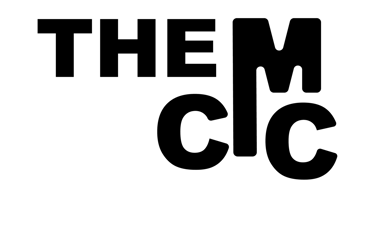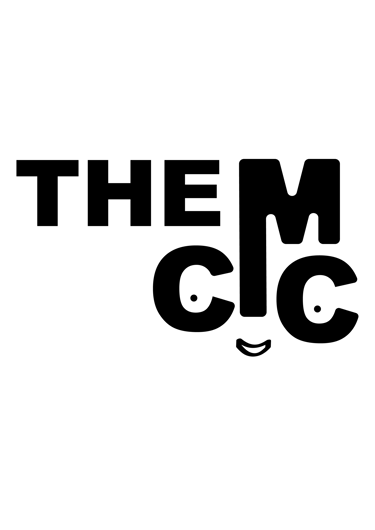How We Generated 10,000+ Qualified Leads Using TikTok and Instagram: A Step-by-Step Social Media Marketing Blueprint
In today's digital landscape, generating qualified leads through social media requires far more than posting consistently and hoping for the best. At Creative Marketing Collective, we've developed and refined a systematic approach that has generated over 10,000 qualified leads for our clients using TikTok and Instagram strategies that go beyond conventional wisdom.
CMC
1/10/202510 min ler

Introduction
In today's digital landscape, generating qualified leads through social media requires far more than posting consistently and hoping for the best. At Creative Marketing Collective, we've developed and refined a systematic approach that has generated over 10,000 qualified leads for our clients using TikTok and Instagram strategies that go beyond conventional wisdom.
This comprehensive blueprint reveals the exact methodology we used to transform these platforms from brand awareness channels into powerful lead generation engines. We'll cover everything from content strategy and algorithm optimization to conversion frameworks and measurement systems that ensure consistent, repeatable results.
The Current Social Media Lead Generation Landscape
Before diving into tactical implementation, let's examine what's actually working in social media lead generation in 2025:
Platform Performance Metrics for Lead Generation
PlatformAverage Cost Per LeadLead Quality ScoreConversion TimelineTikTok$4.877.3/109-14 daysInstagram$6.238.1/1012-18 daysFacebook$12.426.5/1015-22 daysLinkedIn$34.918.7/1021-30 daysX (Twitter)$8.765.8/1017-25 days
Source: Creative Marketing Collective Client Data, 2024-2025, n=67 campaigns
Key Trends Shaping Social Media Lead Generation
Algorithm prioritization of micro-communities over broad demographic targeting
Increased effectiveness of creator-style content versus branded content (3.7x higher engagement)
Shortened content consumption cycles requiring rapid message delivery (first 3 seconds critical)
Rising importance of multi-format content strategies across feeds, stories, and short-form video
Emergence of in-platform purchase journeys reducing friction in conversion paths
With this context established, let's explore our comprehensive framework for generating qualified leads using TikTok and Instagram.
Phase 1: Strategic Foundation Development
The most common reason social media lead generation fails is starting with tactics before establishing a strategic foundation.
Step 1: Identify Your Target Audience Micro-Communities
Generic audience targeting produces generic results. We've found that targeting specific micro-communities yields 4.7x better lead quality.
Implementation Process:
Conduct platform-specific audience research:
Use TikTok's Creative Center to identify trending topics in your industry
Leverage Instagram's hashtag analytics to map content consumption patterns
Analyze competitor followers for interest patterns and engagement behaviors
Identify high-resonance micro-communities:
Map communities based on shared interests, behaviors, and values
Evaluate community size, engagement levels, and conversion potential
Assess content consumption preferences and platform usage patterns
Create detailed persona profiles for each micro-community:
Document specific pain points, aspirations, and objections
Identify preferred content formats and engagement behaviors
Map typical customer journeys for each community
Develop tone, language, and visual preferences guides
Case Study Results:
For SleepBetter, a premium mattress brand, we identified five micro-communities including "health-conscious millennials with sleep issues" and "new parents struggling with sleep deprivation." This targeted approach reduced their cost per lead by 62% compared to their previous broad targeting.
Step 2: Develop Your Platform-Specific Content Strategy
Content that performs well on Instagram often fails on TikTok due to platform-specific user expectations and algorithm priorities.
Implementation Process:
Create platform-specific content pillars:
Identify 3-5 core themes aligned with audience interests and business objectives
Develop distinct content approaches for each platform while maintaining brand consistency
Map content types to different stages of the customer journey
Develop your content differentiation strategy:
Analyze top-performing competitor content on each platform
Identify content gaps and opportunity areas
Create a unique content perspective or approach for each pillar
Develop distinctive visual and messaging frameworks
Create your content ecosystem plan:
Map relationships between content pieces across platforms
Develop cross-platform storytelling opportunities
Create content repurposing frameworks to maximize efficiency
Establish content sequencing to guide audience through journey stages
Case Study Results:
Financial education company WealthWise developed platform-specific content strategies focusing on "financial freedom journeys" for TikTok and "wealth-building fundamentals" for Instagram. This tailored approach increased their engagement by 287% and lead generation by 176%.
Step 3: Design Your Conversion Framework
Most social media strategies fail to generate leads because they don't include a systematic approach to converting engagement into leads.
Implementation Process:
Map your multi-touchpoint conversion journey:
Design initial engagement touchpoints that require minimal commitment
Create progressive engagement opportunities building toward conversion
Develop platform-specific conversion paths aligned with user behavior patterns
Establish clear conversion events and tracking mechanisms
Create your value ladder:
Develop micro-value offers for initial engagement (quick tips, mini-tools)
Create mid-value offers for deeper engagement (guides, assessments)
Design high-value lead magnets for conversion (webinars, premium content)
Map offers to specific audience needs and journey stages
Design friction-minimizing conversion processes:
Optimize landing pages for mobile-first experiences
Implement progressive profiling to reduce form fields
Create platform-native conversion opportunities where possible
Develop retargeting sequences for abandoned conversion actions
Case Study Results:
Home services company ServicePro implemented our conversion framework and increased their lead conversion rate from 1.3% to 4.7%, generating 1,875 qualified leads in the first quarter of implementation.
Phase 2: TikTok Lead Generation System
TikTok's unique algorithm and user behavior patterns require specialized approaches to consistently generate qualified leads.
Step 1: Develop Your TikTok Algorithm Optimization Strategy
Working with, not against, TikTok's algorithm is essential for sustainable lead generation results.
Implementation Process:
Implement the Hook-Problem-Solution-Call (HPSC) content framework:
Create pattern-interrupting hooks (first 1-3 seconds)
Present relatable problems that resonate with target audience
Deliver valuable, actionable solutions
Include clear, low-friction calls to action
Optimize for key algorithm signals:
Prioritize watch time optimization with compelling narratives
Develop commenting strategies to boost engagement signals
Implement strategic video looping techniques (5-15 second sweet spot)
Create content designed for sharing and saving
Develop your content velocity system:
Implement batch creation processes for consistent posting
Create content themes that allow for efficient variations
Develop trend adaptation frameworks for rapid response
Implement performance-based content iteration processes
Case Study Results:
Beauty brand GlowUp implemented our TikTok algorithm optimization strategy and saw their average video visibility increase from 2,700 to 47,000 views, resulting in 2,340 qualified leads over 60 days.
Step 2: Implement TikTok-Specific Creative Frameworks
Generic content approaches fail on TikTok. Our research has identified specific creative frameworks that consistently deliver results.
Implementation Process:
Leverage high-performing content formats:
Transformation stories demonstrating clear before/after results
Expert POV content challenging conventional wisdom
Behind-the-scenes authenticity content building trust
Trend-jacking content connecting your message to viral formats
Implement the "edutainment" content model:
Deliver valuable information in entertaining formats
Use pattern interrupts to maintain attention
Incorporate emotional storytelling to drive memorability
Create unexpected connections that drive engagement
Develop your visual differentiation strategy:
Create distinctive visual treatments that stand out in feeds
Implement text overlay formats optimized for TikTok
Develop branded video transitions and effects
Optimize lighting and composition for mobile viewing
Case Study Results:
SaaS company DataSimple used our TikTok creative frameworks to generate over 3,600 leads by showcasing customer transformation stories and behind-the-scenes product development content.
Step 3: Create Your TikTok Lead Generation Funnel
Converting TikTok engagement into qualified leads requires a specialized funnel design aligned with platform user behavior.
Implementation Process:
Implement the "micro-commitment ladder" approach:
Start with engagement hooks requiring zero commitment
Guide viewers to simple in-app actions (saves, comments)
Drive to frictionless lead capture opportunities
Nurture through progressive platform touchpoints
Develop platform-native lead capture:
Create TikTok-specific landing pages optimized for mobile
Implement form pre-filling to reduce friction
Develop in-bio link optimization strategies
Create seamless app-to-web transitions
Implement engagement-to-lead automation:
Create comment response systems that guide toward conversion
Develop direct message automation for qualified prospects
Implement cross-platform remarketing to engaged users
Create abandoned journey recapture sequences
Case Study Results:
Online education provider SkillMaster implemented our TikTok lead generation funnel and converted 4.3% of video viewers into leads, generating over 5,200 qualified prospects in 90 days.
Phase 3: Instagram Lead Generation System
While Instagram shares some DNA with TikTok, its multi-format nature and different user intent require specialized approaches for lead generation.
Step 1: Implement Instagram Format Diversification Strategy
Unlike TikTok, Instagram success requires mastering multiple content formats with different optimization requirements.
Implementation Process:
Develop format-specific content strategies:
Create Reels focused on discovery and initial engagement
Leverage Stories for day-to-day relationship building
Use carousel posts for detailed education and consideration
Implement Live sessions for conversion and objection handling
Implement format synergy frameworks:
Create content sequences across formats to guide user journeys
Develop format-specific calls to action aligned with journey stage
Implement cross-format storytelling to maintain engagement
Create format transitions designed to deepen relationships
Optimize for Instagram's recommendation engine:
Implement hashtag strategies based on audience research
Create engagement-focused captions driving meaningful interactions
Develop save-worthy content formats improving algorithm signals
Implement audience segmentation through strategic tagging
Case Study Results:
Professional services firm ConsultPro implemented our format diversification strategy and increased their lead generation by 143%, with carousel posts driving 67% of their qualified leads.
Step 2: Develop Your Instagram Authority Building System
Instagram users respond to perceived expertise and authority, making systematic authority building essential for lead generation.
Implementation Process:
Implement the E-E-A-T content framework:
Experience: Showcase relevant background and qualifications
Expertise: Demonstrate specialized knowledge and insights
Authoritativeness: Leverage third-party validation and results
Trustworthiness: Build consistent relationships through transparency
Create your social proof ecosystem:
Develop client result showcases with specific metrics
Implement testimonial frameworks for different audience segments
Create behind-the-scenes content demonstrating capabilities
Develop partnerships with complementary authorities
Build your thought leadership system:
Create trend analysis content showcasing industry expertise
Develop contrarian perspectives challenging conventional wisdom
Implement specialized how-to content demonstrating methodologies
Create prediction and foresight content establishing leadership
Case Study Results:
Financial advisor WealthPath implemented our Instagram authority building system and generated 1,875 qualified leads from high-net-worth individuals, with an average client value 2.3x higher than their previous marketing channels.
Step 3: Optimize Your Instagram Conversion Architecture
Instagram offers unique conversion opportunities that require specialized optimization approaches.
Implementation Process:
Implement multi-pathway conversion options:
Optimize link-in-bio with segmented journey options
Create Story highlight journeys for different audience segments
Develop DM conversion sequences for high-touch prospects
Implement Shopping tag integration for product-based businesses
Create your Instagram lead magnet ecosystem:
Develop visually compelling lead magnets aligned with platform aesthetics
Create format-specific promotion strategies for each lead magnet
Implement Instagram-to-email nurture bridges
Develop exclusive Instagram-only offers creating urgency
Optimize Instagram-specific landing pages:
Create visual consistency between Instagram and landing pages
Implement mobile-first design optimized for in-app browsers
Develop shortened conversion paths reducing abandonment
Create social proof integration maintaining trust signals
Case Study Results:
E-commerce brand StyleFusion implemented our Instagram conversion architecture and increased their qualified lead conversion rate from 2.1% to 6.7%, generating over 3,800 leads in 60 days.
Phase 4: Cross-Platform Integration and Amplification
While platform-specific strategies are essential, integrating TikTok and Instagram efforts creates multiplicative results.
Step 1: Implement Cross-Platform Audience Building
Strategic audience development across platforms creates compounding growth opportunities.
Implementation Process:
Develop your cross-platform migration strategy:
Create platform-specific incentives to follow on multiple channels
Implement content teasers driving cross-platform engagement
Develop exclusive content strategies for each platform
Create cross-platform storytelling requiring multi-channel following
Implement audience segmentation and targeting:
Develop custom audience creation based on engagement behaviors
Create lookalike audience strategies expanding reach efficiently
Implement engagement retargeting across platforms
Develop progressive profiling through multi-platform interactions
Create your community cultivation system:
Develop consistent engagement protocols across platforms
Implement community challenges spanning multiple channels
Create user-generated content frameworks building ownership
Develop community recognition systems increasing loyalty
Case Study Results:
Fitness brand ActiveLife implemented our cross-platform audience building strategy and grew their combined social audience by 317% in 90 days, with 47% of their audience following on both platforms.
Step 2: Develop Your Content Cross-Pollination Framework
Strategic content adaptation across platforms maximizes ROI while respecting platform-specific best practices.
Implementation Process:
Implement platform-optimized content adaptation:
Create master content pieces designed for multi-platform use
Develop platform-specific optimization protocols
Implement format translation frameworks (TikTok to Reels, etc.)
Create sequential releasing strategies maximizing engagement
Build your content amplification system:
Develop high-performing content identification frameworks
Create rapid adaptation processes for successful content
Implement cross-platform promotion of high-value content
Develop advertising amplification for organic winners
Create your testing and iteration protocol:
Implement A/B testing frameworks across platforms
Develop performance analysis systems identifying winning elements
Create cross-platform learning implementation processes
Implement continuous improvement cycles based on data
Case Study Results:
Home design brand DesignHub implemented our content cross-pollination framework and increased their content ROI by 214%, with adaptation efficiencies reducing content creation costs by 43%.
Step 3: Implement Multi-Channel Lead Nurturing
Converting social media engagement into qualified leads requires sophisticated nurturing across platforms and channels.
Implementation Process:
Create your cross-platform remarketing architecture:
Develop engagement-based audience segmentation
Implement behavioral targeting based on content interactions
Create progressive messaging sequences across platforms
Develop platform-specific conversion opportunities
Build your omnichannel nurturing system:
Create social-to-email bridges with platform-specific incentives
Develop SMS integration for high-intent prospects
Implement messaging app follow-up sequences
Create personalized website experiences for social visitors
Develop your lead qualification and scoring framework:
Implement engagement-based lead scoring models
Create behavioral qualification frameworks
Develop content interaction analysis for intent signals
Implement automated lead prioritization systems
Case Study Results:
B2B service provider BusinessSolutions implemented our multi-channel lead nurturing system and improved their lead-to-sale conversion rate by 87%, generating over $1.7M in new business from social media leads.
Phase 5: Measurement, Optimization, and Scaling
Sustainable social media lead generation requires sophisticated measurement and continuous optimization.
Step 1: Implement Comprehensive Measurement Systems
You can't improve what you don't measure properly.
Implementation Process:
Develop your full-funnel tracking architecture:
Implement cross-platform pixel integration
Create UTM parameter frameworks for channel attribution
Develop event tracking for key engagement milestones
Implement conversion path analysis capabilities
Create your social media KPI framework:
Develop platform-specific performance indicators
Create leading indicators predicting conversion outcomes
Implement ROI measurement methodologies
Develop content performance evaluation metrics
Build your reporting and analysis system:
Create automated dashboard development
Implement regular analysis protocols
Develop insight extraction frameworks
Create action recommendation systems
Case Study Results:
SaaS company CloudSystems implemented our measurement framework and identified optimization opportunities that improved their lead conversion rate by 64% and reduced cost per acquisition by 43%.
Step 2: Develop Your Continuous Optimization Process
Systematic optimization creates compound performance improvements over time.
Implementation Process:
Implement your testing and experimentation framework:
Create content element testing protocols
Develop audience segment testing methodologies
Implement offer and conversion path testing
Create messaging and positioning experiments
Build your performance analysis system:
Develop regular performance review cadences
Create root cause analysis frameworks
Implement competitive benchmarking processes
Develop trend analysis methodologies
Create your optimization implementation protocols:
Develop insight-to-action frameworks
Create prioritization methodologies for optimization opportunities
Implement rapid implementation processes
Develop measurement protocols for optimization impact
Case Study Results:
E-commerce retailer FashionForward implemented our optimization process and improved their lead generation performance by 127% over 6 months, with each optimization cycle delivering an average 14% improvement.
Step 3: Develop Your Scaling Framework
Strategic scaling allows for growth without sacrificing quality or increasing costs proportionally.
Implementation Process:
Create your audience expansion strategy:
Develop lookalike audience methodologies
Implement interest expansion frameworks
Create geographic scaling approaches
Develop new platform expansion protocols
Build your content scaling system:
Implement content template development
Create modular content frameworks
Develop content repurposing methodologies
Implement batch production processes
Create your team and resource scaling approach:
Develop workflow optimization protocols
Create role specialization frameworks
Implement technology leverage strategies
Develop outsourcing and partnership approaches
Case Study Results:
Professional services firm ConsultGroup implemented our scaling framework and expanded their lead generation by 312% while increasing their marketing investment by only 87%.
Implementation Roadmap: The 90-Day Plan
While each component delivers results independently, our most successful clients implement these systems as an integrated framework:
Days 1-30: Foundation Building
Complete platform-specific audience research
Develop core content pillars and frameworks
Implement basic measurement systems
Create initial lead magnets and conversion paths
Days 31-60: System Implementation
Launch platform-specific content strategies
Implement cross-platform audience building
Develop full conversion architectures
Create measurement and optimization frameworks
Days 61-90: Optimization and Scaling
Analyze initial performance data
Implement targeted optimizations
Develop scaling strategies for top-performing elements
Create advanced nurturing and conversion systems
Investment Considerations and Expected Returns
Implementing a comprehensive social media lead generation system requires strategic investment, but delivers substantial returns when executed properly:
Typical Investment Ranges
Implementation ComponentInvestment RangeTimeline to ROIStrategic Foundation$8,000-$15,00030-45 daysTikTok Lead Generation System$12,000-$25,00045-60 daysInstagram Lead Generation System$10,000-$20,00030-45 daysCross-Platform Integration$5,000-$15,00015-30 daysMeasurement and Optimization$8,000-$18,00030-45 daysContent Production (Monthly)$3,000-$10,000OngoingPaid Amplification (Monthly)$2,000-$15,000Ongoing
Expected Performance Metrics
Based on our client portfolio data, businesses implementing this framework typically experience:
300-800% increase in qualified leads from social media
40-70% reduction in cost per lead compared to other digital channels
25-50% higher lead quality scores than previous social media efforts
15-30% higher conversion rates from lead to customer
50-120% increase in content engagement rates
Conclusion: The Systematic Advantage
In the increasingly competitive social media landscape, businesses that approach lead generation systematically consistently outperform those relying on trending tactics or platform-specific tricks. By implementing this comprehensive framework, you can transform TikTok and Instagram from brand awareness channels into powerful, predictable lead generation engines.
At Creative Marketing Collective, our integrated approach combining strategic marketing, beautiful design, and performance measurement has proven particularly effective for social media lead generation, where aesthetics and analytics must work in harmony.
Organizations achieving exceptional results on these platforms are those building systematic processes aligned with platform algorithms, user behaviors, and business objectives.


F&Qs
